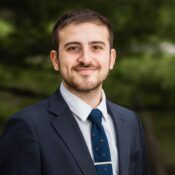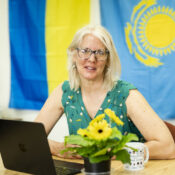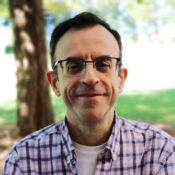Understanding and Addressing Linguistic Bias and Discrimination
Day 2: November 15, 2023 | 1:00 p.m. – 2:15 p.m., Marquee Theater
Session Video
Session Description
This breakout session will focus on the concrete ways that language ideologies — attitudes and beliefs about the nature of language and about language variation — can reinforce and perpetuate stereotypes and result in discriminatory practices. The session will introduce a ‘raciolinguistic’ perspective to explore questions such as: What is standard(ized) English and whose language does it (not) represent? What does it mean to have an accent or to think you don’t? How do our beliefs about language influence how we perceive and treat others? What is linguistic discrimination? Participants will examine their own beliefs related to language, linguistic diversity, and language variation, and consider ways in which linguistic ideologies result in discriminatory practices in educational and other settings. Participants in this session will bridge the divide by learning how variation is an inherent characteristic of human language and how racial and other inequities are perpetuated by the stigmatization of certain language varieties. Participants in the session will realize belonging by considering how to identify and address linguistic bias and discrimination in their academic, professional and personal lives by engaging in reflection and in critical discussion with the presenters and one another.
Speakers
Martiniano Etchart
An Argentina native, Martiniano joined the Second Language Acquisition Doctoral Program at the University of Wisconsin-Madison in 2021. At UW-Madison, Martiniano has taught Spanish, English, and worked as a tutor at the Writing Center. Currently, he is the Language Institute’s Project Assistant. Through this position, he has been able to closely collaborate with the Language Ideology and Linguistic Discrimination working group as well as develop an ongoing video project on student voices of belonging at the UW-Madison campus. In his research, he is interested in second/foreign language educators and learners’ psychology (e.g., cognitions and emotions) as well as in ideologies of native speakerism.
Dragan Mikulin
Dragan (ze/hir) is a joint PhD student in the Linguistics and Geography PhD programs. As a sociocultural linguist, hir research focuses on language ideologies, language and harm, dialectology, and language and community-making in queer and trans communities. Ze has taught Introduction to Composition, Global Language Issues, Introduction to the Study of Language, and several ESL courses as instructor of record, and has served as a TA for courses such as Language and Discrimination in U.S. Society; Language, Gender, and Sexuality; History of the English Language; Gender, Bodies, and Health; and Introduction to the Study of Language. Dragan’s work has been supported by the Foreign Language and Area Studies Fellowship, the Critical Language Scholarship, and the Fulbright Study/Research Award, among others. Hir current work focuses on the passive voice and victim-blaming.
Dianna Murphy
Dianna Murphy is director of the University of Wisconsin-Madison Language Institute, co-director of the Russian Flagship Program, a core member of the Second Language Acquisition Doctoral Program, and co-coordinator of the Language Ideology and Linguistic Discrimination working group. She has led yearlong seminars on promoting diversity and inclusion in language education and published national studies on the diversity of U.S. undergraduate students of languages. She currently serves on the Modern Language Association ad hoc committee on Anti-Racism.
Fernando Tejedo
Fernando’s courses in Spanish in the US, dialectology, and language variation and change, regularly include issues of language ideology and language and dialect discrimination. His research combines linguistic and sociohistorical insights to understand how language and sociopolitical ideologies may have a social impact on speakers of minority languages. His current research also lies in the development of standard languages in relation to nationality, social status, language identity, and education.



